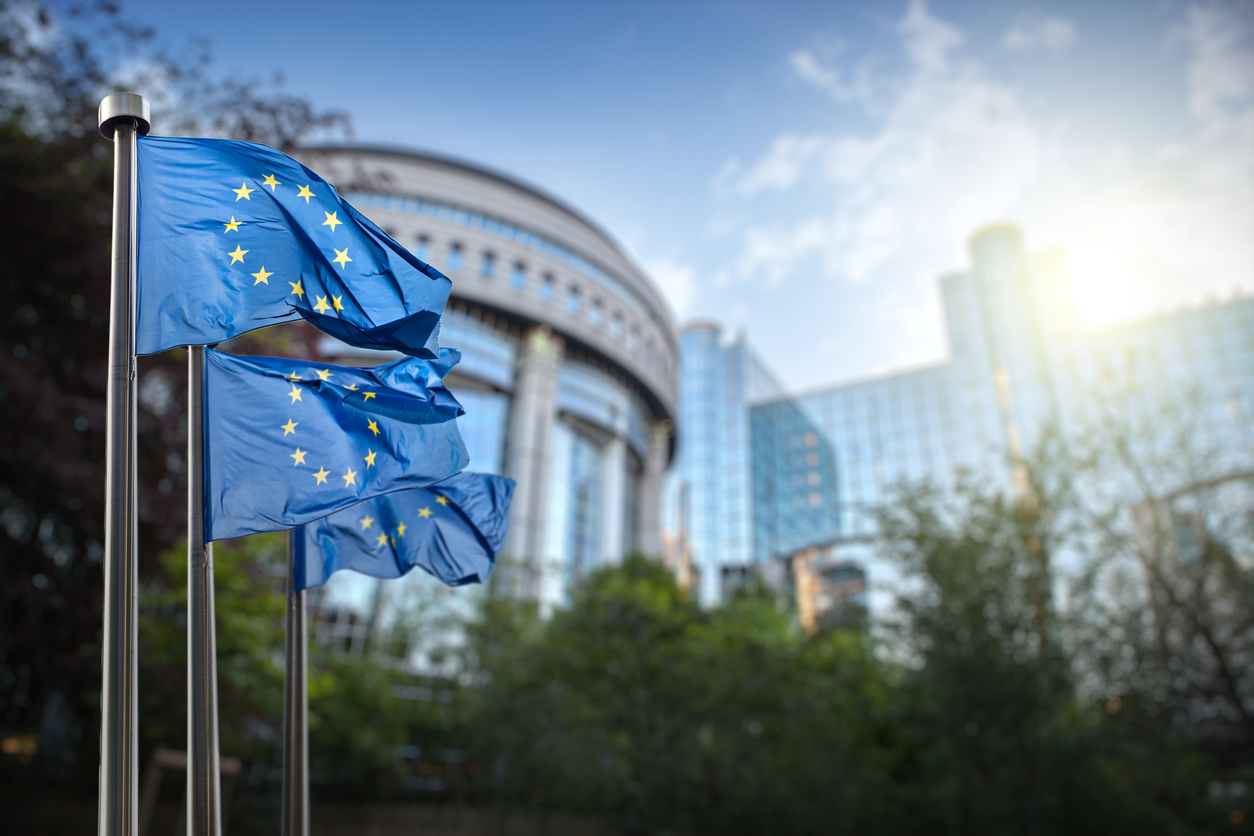New EU Law Could Require IMessage and WhatsApp to Work With Other Smaller Platforms

"*" indicates required fields

On April 1, 2022, the European Union lawmakers came to an agreement that the world’s leading messaging services will have to collaborate and interoperate with their smaller counterparts when requested. This newly agreed-upon Digital Markets Act is set to come into force by October 2022 and has shaken players like Meta, Apple, and Alphabet to their core.
This move would essentially allow users of small or big platforms, including Discord and Signal, to exchange messages, make voice/video calls, and share files across different apps. As a result, they won’t have to rely on a single platform to facilitate their communications solely. From a governance perspective, this move aims to keep large platforms in check and level the playing field for others.
The new law EU law was introduced following an 8-hour long trialogue between the EU parliament, Security Council, and Commission. In this session, the three bodies agreed that the largest messaging service providers in the world would have to interoperate with smaller platforms upon request. They will essentially become “Caretakers” within their industry, as the EU co-legislators termed it.
While this law is yet to be adopted, the new Digital Markets Act is set to compel giants like Apple, Meta, and others to share some of the control and dominance they have enjoyed over the years. For instance, if you want to send an iMessage right now, you could only send it to a recipient who owns an Apple device with the iMessage app installed.
The new law could mean an iMessage user could have a conversation with a Telegram user using a Windows PC. Of course, there’s still a lot to be revealed but what we know for now is that the big boys have no choice but to work with each other and their not-so-big rival companies.
This level of interoperability may raise a lot of complex issues, especially those related to data encryption and privacy. Therefore, we could see an extension in the deadlines to accommodate cross-platform communication and exchange.
However, with the events leading to this legislation, it’s expected that gatekeepers may have just a quarter (three months) to enable cross-platform compatibility and meet the demands of the EU. In other words, the clock is ticking quickly.
On the surface, this law would give EU residents several choices in messaging apps regardless of their devices. They will be able to install any messaging app without having to worry about limiting themselves to that app’s user base. Currently, messaging apps aren’t cross-compatible. Thus, the player with the biggest user base has the edge over others.
In the modern landscape, that player seems to be Apple, which has always been regarded as the worst offender when it comes to sharing with other devices. Therefore, enabling access to users outside the Apple ecosystem would undoubtedly be a painful endeavor.
Apart from text, users could also exchange files and make video calls from different apps. Moreover, the law would also enable users to pick which core apps or services they want to install on their devices, from browsers to search engines and virtual assistants. In other words, EU residents would be able to summon Siri on their Android devices or use Google Chrome on their iPhones.
The Digital Market Act is out to put an end to the dominance of Big Tech companies in the digital space and allow others to grab a fair share in the market. Of course, there’s a lot of work to be done, but interoperability is well on the cards, considering the latest developments.
Who Are Gatekeepers?
“Gatekeepers” is a term assigned by the EU co-legislators to large messaging companies most prone to unfair practices in the digital space. These companies have a minimum market cap of $79-$80 billion or an annual turnover of $8 billion. Gatekeepers must also provide other services apart from messaging, such as social media, search engines, browsers, and dedicated messengers.
Moreover, their platforms must have a minimum monthly traffic of 45 million users in the EU and at least 10,000 business users. As things stand, the gatekeeper candidate list includes Alphabet (Google’s parent company), Apple, Meta, and Microsoft.
If any of these companies fail to meet the new demands set by the EU, they could be forced to pay a penalty of up to 10% of their global turnover for that year. This penalty could move up to 20% of their turnover for repeated offenses. More importantly, they could be banned from acquiring other businesses for a specified period.
Every global messaging service has unique encryption protocols that keep user information secure from hackers and criminals. The most concerned players in the market at this point are WhatsApp and Signal, both of which would be required to adopt protocols like SMS, which are far less secure in contrast.
Many experts believe there’s no viable way to fuse different encryption technologies without one party undergoing major change. Meta claims they’re not making any products identical or interchangeable with other products in the market. Thus, it’s nearly impossible to combine them without decrypting and re-encrypting messaging.
So, there you have it – everything you need to know about the new EU law that could prompt large messaging services to work with their smaller counterparts. The Direct Markets Act might seem harsh on the surface. However, it seems like the right approach to curb unfair, monopolistic practices in the industry and help other worthy businesses get into the game and compete on merit.
For more related news from the business world, we recommend visiting Percento Technologies.